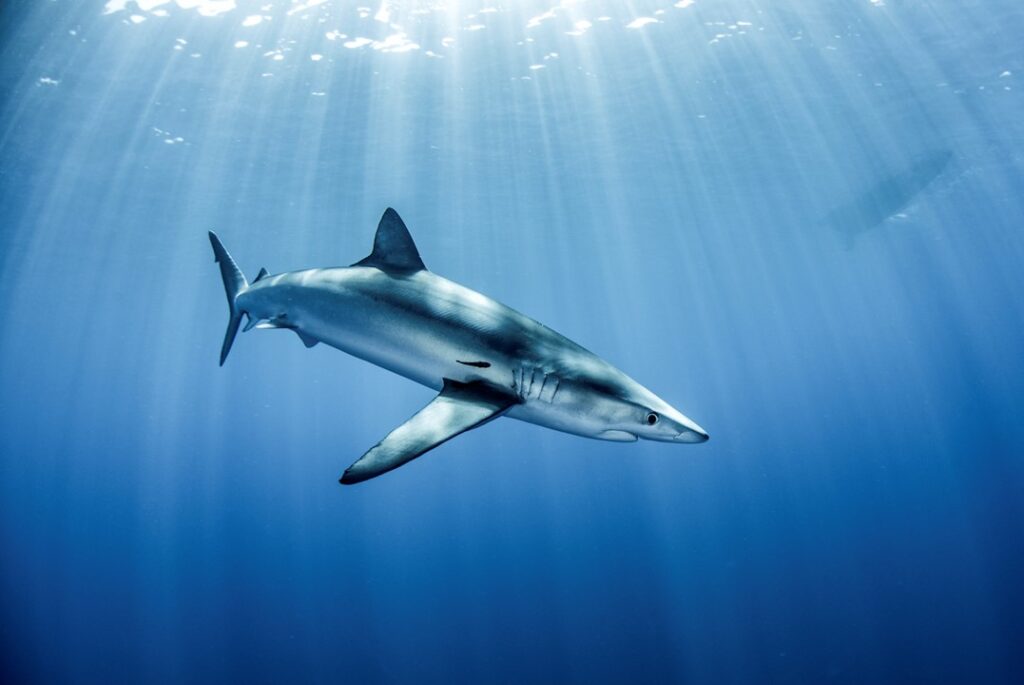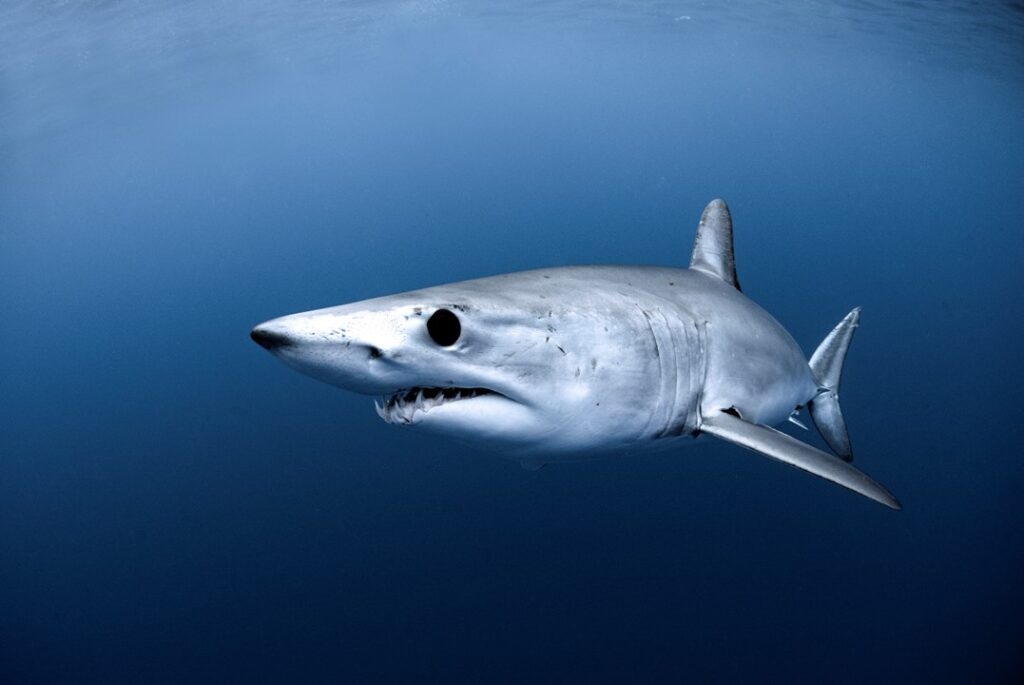
As the iconic film Jaws marks its 50th anniversary this week, MBA Senior Research Fellow and Professor of Marine Ecology at the University of Southampton, Professor David Sims, has published a compelling article in The Conversation that examines the film’s lasting impact on sharks and how science is helping them recover.
In his article titled Jaws helped spur a fishing frenzy – so how have the world’s sharks fared since the 1975 release?, Professor Sims reflects on how the movie, while a cultural phenomenon, contributed to widespread fear of sharks – known as the ‘Jaws effect’ – which fuelled shark hunting and contributed to population declines.

Importantly, Professor Sims shares a remarkable personal connection to the story behind Jaws; he was interviewed 25 years ago by the late Peter Benchley, author of Jaws and co-writer of the screenplay, on Benchley’s radio show focused on ocean conservation. The interview centred on Professor Sims’ pioneering research at the Marine Biological Association (MBA), particularly his use of satellite tracking to study basking sharks.
“Benchley later became a strong advocate for shark conservation, and it was a real honour to discuss my early research with him. He was genuinely fascinated by the science,” Professor Sims remembers.
In his article, Professor Sims explains that while shark fishing tournaments surged after the film’s release, the larger issue then and today is industrial-scale fishing, which continues to decimate populations. An estimated 100 million sharks are killed every year. Nearly a third of shark species are now threatened with extinction.
However, there is hope. Through international protections, public awareness, and the MBA’s cutting-edge research – including satellite tracking of sharks conducted by Professor Sims and his passionate team – positive change is possible. Recent signs of recovery for species such as the Great White in some regions show that science-based conservation works.
New research by Professor Sims’ team has shown that climate change in addition to fishing pressure will further impact shark habitat use and distributions, increasing overlap with human-induced threats in future. The team will continue their research next month in Cape Verde off West Africa by deploying new electronic tags that measure responses of oceanic sharks to extreme climatic events like marine heatwaves and deoxygenation.
Listen to Professor Sims’ interview with BBC World Service on what sparked his interest in sharks, the ‘Jaws effect’, and how the team is collaborating with others to put protections in place for their future.
Read the full article:
Jaws helped spur a fishing frenzy – so how have the world’s sharks fared since the 1975 release? – The Conversation, June 19, 2025
Read Sims Lab’s recent journal articles:
“Climate-driven global redistribution of an ocean giant predicts increased threat from shipping.” Nature Climate Change 14, 1282–1291. https://www.nature.com/articles/s41558-024-02129-5
“Climate-driven deoxygenation elevates fishing vulnerability for the ocean’s widest ranging shark.” eLife 10, e62508. https://elifesciences.org/articles/62508